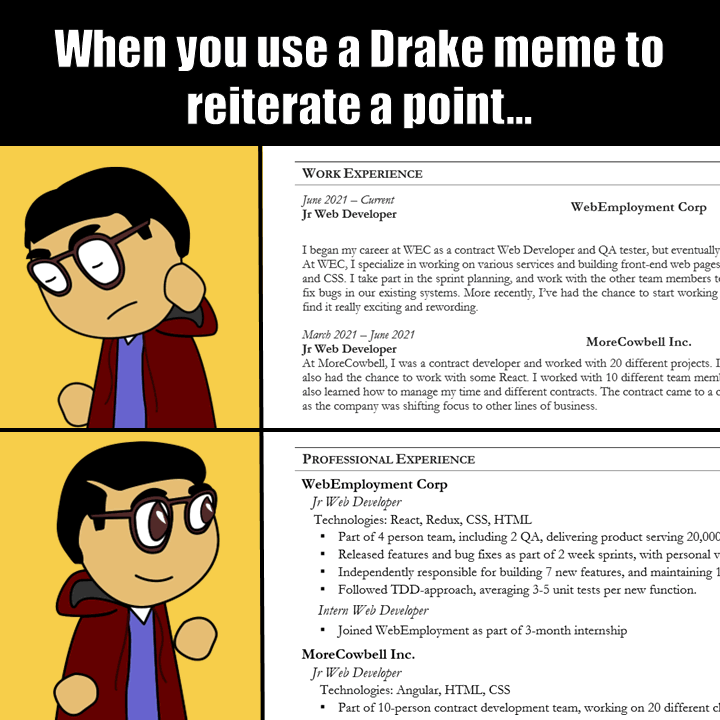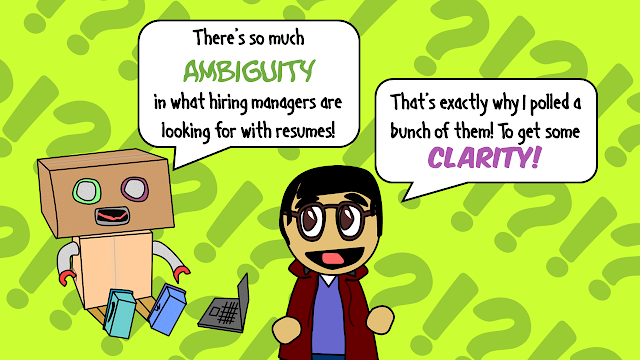Practice, not Production
Like most kids, my 6-year-old loves to draw. But, unlike what I've seen in other kids, my son likes to draw the same thing repeatedly, trying to improve upon it with each pass. He'll intently watch time-lapsed sketching videos by real artists who have recorded their process - and then he'll try it out for himself. The result is he'll produce drawings that are pretty advanced for his age.
But he's still young, so his motor skills are still catching up with what he wants to get down on paper. And that leads to easily getting frustrated - something every parent finds themselves coaching their kids through.
It reminded me of something I once heard: When you're talented at something, you can spot the imperfections that other are faster to write-off. While most people will praise the work, you are left feeling it could be better and obsessively pursue perfection. Knowing when to stop and getting to "Good enough" is an important skill otherwise you risk "overworking the dough" and setting yourself back.
For my son, each one of his drawings is that same pursuit of perfection. I started to see the negative side of this pursuit emerge when he no longer saw each drawing as practice but a final product. Small slip-ups would result in the drawing getting crumpled up and thrown in the trash before I could save it. And then he'd start all over.
While I appreciate his persistence, I had me thinking about something I talk about with my daughter: getting good at getting good. She and I are very similar, in that many skills come to us quickly and without much effort. As helpful as that may be, it also means the discipline to practice doesn't come naturally. To avoid hitting the inevitable ceiling of natural talent, we work together to "get good at getting good." We come up with systems, hacks, methods that push us to continue to practice before hitting that ceiling.
I'm not sure how much of my son's drawing is natural talent - but I know a large part has come through that repetitive practice that doesn't naturally come to me. While he doesn't need to "get good at getting good," he was getting frustrated because it was about production, rather than practice. We told him about Bob Ross, and the importance of happy accidents. And then I remembered a lesson I'd heard long ago - about a way to fight a creativity block: when staring at an intimidating blank sheet of paper, crumple it up. It's a powerful reminder that the brainstorming (or heartstorming!) phase is all about producing as many throw-away ideas as possible. It's about practice, not perfection. If a good idea is in there, then you re-produce it on a nice sheet of paper.
I made up a story that I told my son - about an amazing artist who was capable of producing such amazing pieces of work, people would cry when they saw them. But the Artist had a problem - despite being so good, he was always too scared to draw anything because he was too afraid of making a mistake. So, he never made any art - until a smart little village boy (who happened to share my son's name...a complete coincidence!) announced that he believed the Artist had no real talent at all. The Artist was shocked, and angry - but still couldn't bring himself to prove his skill. The boy then took an old dirty napkin, crumbled it some more, and then told the Artist to draw on it. The Artist was mortified, and didn't want to even touch the sheet of paper. The boy told him it was ok - the napkin was already ruined; they would throw it away afterward - but that this would offer a way for the Artist to show the world what he could do. And so, the pressure of perfection washed away, the Artist produced something amazing. The boy, acknowledging the Artist's skill, reminded him: when you're starting at perfection, like a perfect sheet of paper, you'll only add imperfections. If you start from the imperfect, the pressure goes away, and you can then focus on doing the best you can to make the imperfect better.
That's how I've come to see my own writing about these things. Sometimes I have an idea in my head, sometimes I have a goal in mind. Other times the point is diluted in somewhat of a rambling... but that's ok. It's practice, not production.





